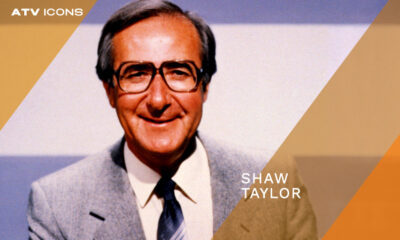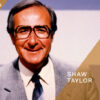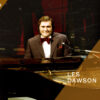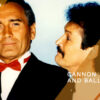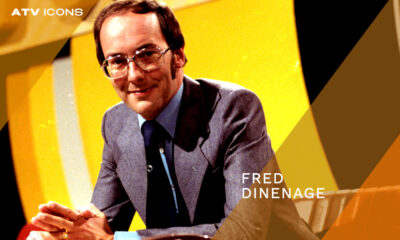
Icons
ATV Icon: John Thaw
ATV Icons continues to celebrate 70 years of ITV with another star name added to the hall of fame – John Thaw…
John Edward Thaw, CBE was known for his work across television, stage, and film; he is best remembered for his starring roles in the television series’ The Sweeney, Inspector Morse, and Kavanagh Q.C. These ITV roles made him one of Britain’s most popular actors.
John Thaw was born on 3 January 1942 in Gorton, Manchester, England. His father, John (known as “Jack”) Thaw, worked as a tool-setter and later as a long-distance lorry driver, while his mother, Dorothy (née Ablott), left the family when John was seven years old.
Thaw and his younger brother Raymond were largely raised by their father and had a difficult childhood due to their father’s frequent absences for work. He grew up in the Gorton and Burnage districts of Manchester and attended Ducie Technical High School for Boys, where he earned just one O-level (ordinary level) qualification. Despite a modest academic record, Thaw was drawn to acting from a young age. At 16 – two years younger than normally permitted – he gained entry to the prestigious Royal Academy of Dramatic Art (RADA) in London, where he trained for the stage. Thaw excelled at RADA, winning the academy’s Vanbrugh Award, and thus set the foundation for his acting career.

John Thaw in ‘Redcap’ / ABC Manchester TV

John Thaw in ‘Redcap’ / ABC Manchester TV
John made his professional stage debut in 1960 at the Liverpool Playhouse, appearing in the play A Shred of Evidence. His performance earned him a contract with the theatre, giving the young actor valuable repertory experience. He soon branched into film as well – one of his earliest film roles was a small part in The Loneliness of the Long Distance Runner (1962), a critically acclaimed British drama starring Tom Courtenay. On stage, Thaw even had the opportunity to perform alongside legendary actor Laurence Olivier in the 1962 production of Semi-Detached.
Around the same time, Thaw began making inroads into television. In 1961, at age 19, he had his telly debut in Granada Television’s The Younger Generation, an anthology series featuring young actors in one-off dramas. He then appeared in several episodes of the popular BBC police drama Z-Cars (1963–64) as a detective constable. His first leading television role came in Redcap (1964–1966), an ITV drama in which he portrayed Sergeant John Mann, a tough-minded military police investigator in the British Army’s Special Investigation Branch.
This role as a no-nonsense “Redcap” (Army slang for military police) gave him early recognition. Throughout the late 1960s, he continued with guest roles in various TV series and plays – including in an episode of The Avengers, in 1964, and took on roles in other dramas such as Bat Out of Hell and Inheritance both in 1967. By the end of the decade, John Thaw had established himself as a versatile young actor in Britain’s theatre and television scene.
His breakthrough role came in the 1970s, with a character that would make him a household name. In 1974, he was cast as Detective Inspector Jack Regan in a Thames Television / Euston film for ITV called Regan, which served as a pilot for what became the crime drama series The Sweeney. In The Sweeney (broadcast 1975–1978), John starred alongside Dennis Waterman (as his partner, Detective Sergeant Carter) and Garfield Morgan (as their superintendent).
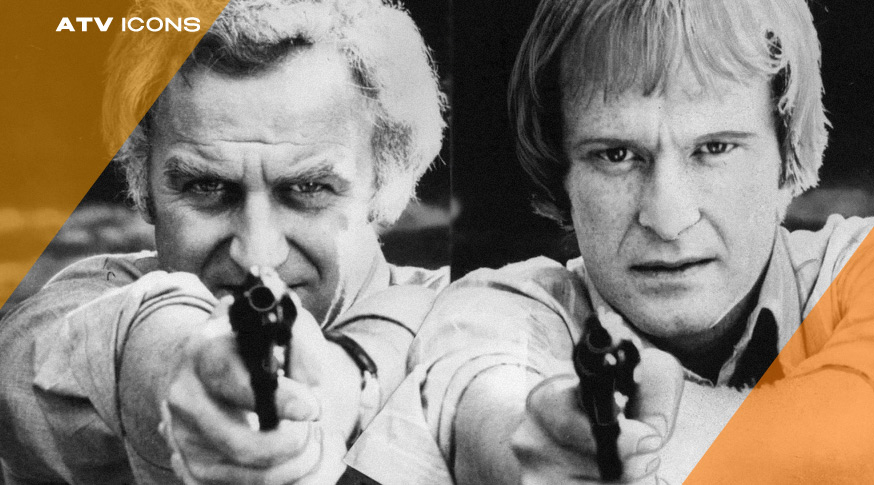
John with Dennis Waterman in ‘The Sweeney’ / Thames Television
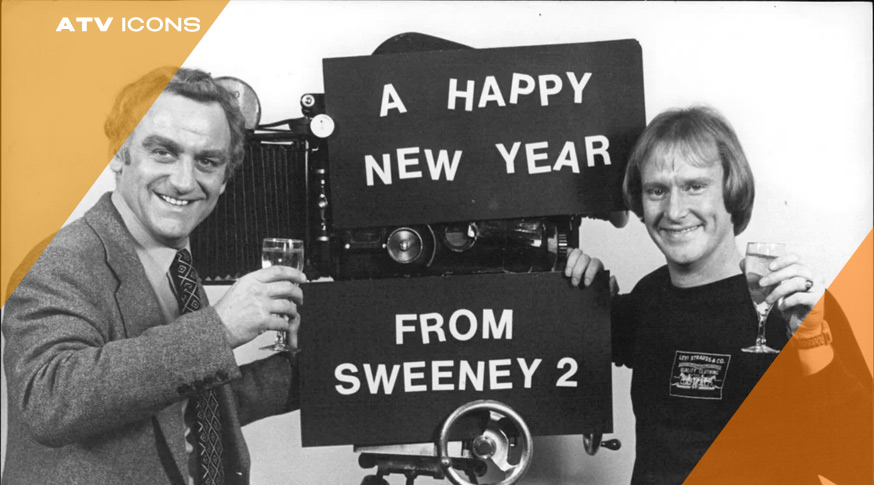
John with Dennis Waterman in ‘The Sweeney 2’ / Thames Television / Euston Films
Thaw’s character Jack Regan was a hard-bitten, tough-talking officer in the Metropolitan Police’s Flying Squad (nicknamed “the Sweeney” from Cockney rhyming slang, Flying Squad → Sweeney Todd). The show was revolutionary for its time, depicting gritty, action-packed police work on the streets of 1970s London. It was hugely successful, running for four series totalling 53 episodes, and even spawned two feature film spin-offs, Sweeney! (1977) and Sweeney 2 (1978).
The image of Thaw as Regan – often seen sprinting through frantic car-chase scenes and barking commands – became an enduring symbol of 1970s British police as portrayed on television.
During the decade he also showed his range by taking on roles outside of straight drama. Notably, he starred in a 1974 comedy-drama series called Thick as Thieves, written by Dick Clement and Ian La Frenais. In an interesting twist, this show cast Thaw “on the wrong side of the law” – he played a burglar who, after his release from prison, complicates the life of his former partner-in-crime and the partner’s wife (played by Bob Hoskins).
Towards the end of the 70s, John continued to diversify his roles; In 1978, at the height of The Sweeney’s popularity, he delivered a powerful performance in the television play Dinner at the Sporting Club, and he also took part in notable one-off TV dramas – one later example often cited is We’ll Support You Evermore from 1985, where he portrayed a grieving father – a performance some critics consider one of his finest.
In 1987, John debuted in what would become his most celebrated role: the title character in Inspector Morse. This ITV series, from Zenith Drama and Central Television, was based on Colin Dexter’s detective novels.
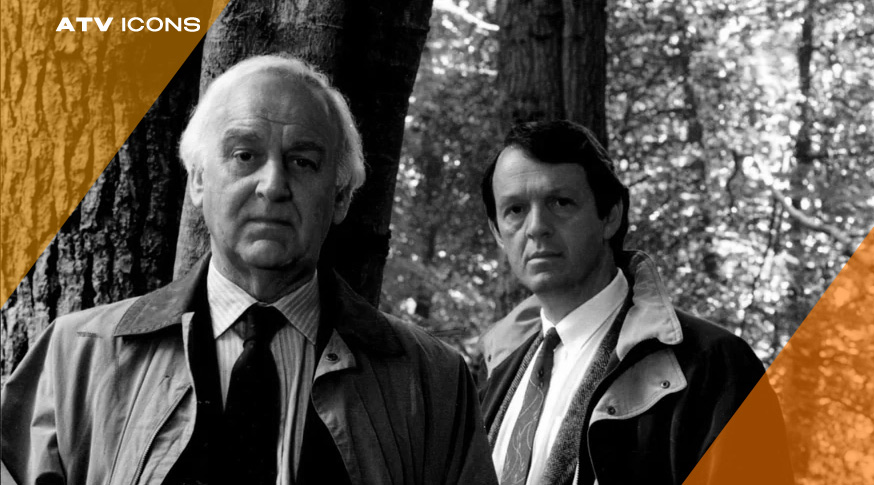
John with Kevin Whately in ‘Inspector Morse’ / Central Television Enterprises
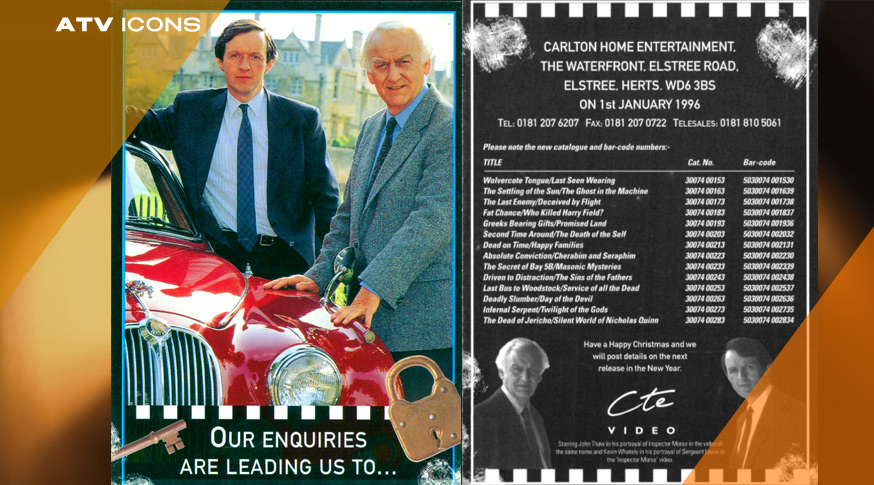
Inspector Morse VHS publicity / CTE / Carlton
Episodes feature Thaw as Endeavour Morse, a cultured, cantankerous detective chief inspector solving complex crimes in Oxford. The character of Morse was a striking departure from the rough-edged Jack Regan of The Sweeney.
Instead of fists and fast cars – though Morse did have a classic Jaguar car – the emphasis was on cerebral detective work, with Morse portrayed as a somewhat melancholic intellectual – a lover of classical music, real ale, cryptic crosswords, and poetry. Thaw’s nuanced performance humanised the character’s gruff exterior, revealing Morse’s keen intellect and his flaws alike; impatience, pedantry, and occasional loneliness. The Guardian later noted that “Thaw was the definitive Morse – grumpy, crossword-fixated, drunk, slightly anti-feminist, and pedantic about grammar”.
Indeed, John so embodied the role that many viewers came to associate him indelibly with the character of Inspector Morse.
Inspector Morse ran for 33 two-hour episodes from 1987 to 1993, with several special episodes in the 1990s, ultimately concluding in 2000. The series was both a critical and popular success. At its peak in the mid-1990s, Inspector Morse drew a huge ITV audience – about 18 million viewers in the UK, roughly a third of the country’s population. Thaw’s portrayal earned him widespread acclaim, including two British Academy of Film and Television Arts (BAFTA) Awards for Best Actor for the years 1990 and 1993.
The character’s popularity also led to a continuing legacy: a spin-off series Lewis, starring Kevin Whately, who had played Morse’s loyal sergeant, and a prequel series Endeavour, exploring Morse’s early career.
For John Thaw personally, the role of Morse became the cornerstone of his career and made him internationally known, especially in the United States where the series was broadcast on PBS.
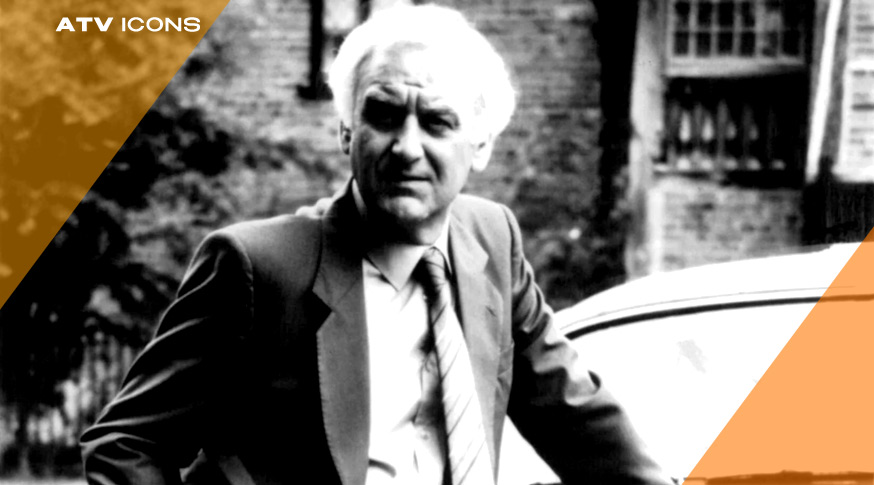
John as Endeavour Morse / Central Television

John in a promo for Central Broadcasting, 1990s / Central Television
While Inspector Morse was still on the air, Thaw embarked on another major television project; In the mid-1990s he starred in Kavanagh QC, (Central/Carlton TV) playing barrister James Kavanagh, QC (Queen’s Counsel). This ITV courtroom drama ran from 1995 to 1999, with a one-off special in 2001, and featured Thaw as a principled, working-class lawyer who rises to become a Queen’s Counsel.
The role of Kavanagh was quite different from both Regan and Morse: instead of police work, the stories focused on legal cases and moral dilemmas, and John’s character was a sharp, fair-minded advocate navigating Britain’s judicial system. Kavanagh QC was well received by both critics and audiences.
John continued to take diverse roles throughout the 1980s and 1990s beyond his three most famous series.
He had starred in a comedic domestic sitcom Home to Roost (1985–89), playing a curmudgeonly divorced father, whose teenage son moves back in with him – a role that showed Thaw’s lighter, comedic side and ran for four series from Yorkshire Television.
In 1991, he appeared in Stanley and the Women, a television adaptation of a Kingsley Amis novel, demonstrating his ability to handle complex social satire. Thaw wasn’t afraid to venture into period pieces either: he portrayed historical figures such as Sir Francis Drake in the TV film Drake’s Venture (1981) and appeared in a 1984 BBC production of Shakespeare’s King John as Hubert.
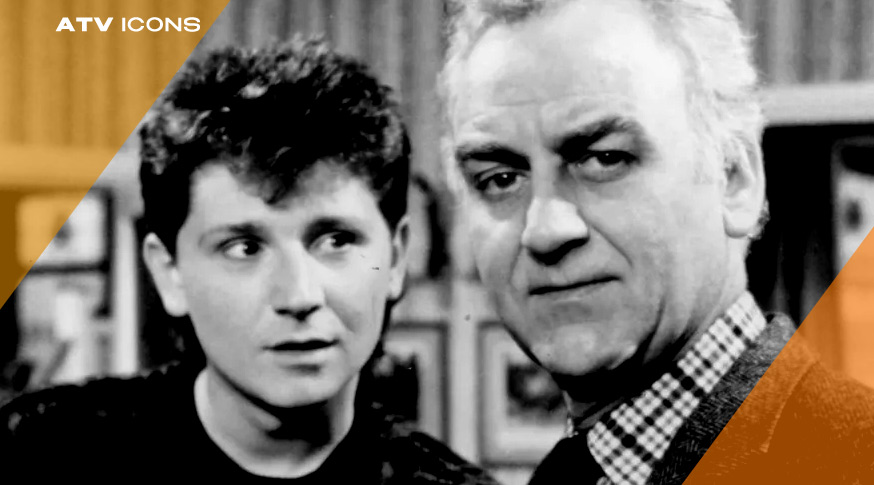
Comedy with Reece Dinsdale in ‘Home to Roost’ / Yorkshire Television

Reece Dinsdale and John in sitcom ‘Home to Roost’ / Yorkshire Television
In the late 1990s, he took on the lead role in Goodnight Mister Tom (ITV, 1998), a television film adaptation of Michelle Magorian’s novel set during World War II. He played Tom Oakley, an elderly widower who shelters an evacuated boy during the Blitz, delivering a performance that was both poignant and heartwarming. Goodnight Mister Tom was a ratings success and won the 1999 National Television Award for Most Popular Drama, with John himself earning the National Television Award for Most Popular Actor that same year.
In 2000, Thaw starred in the ITV miniseries Monsignor Renard, portraying a conflicted Catholic priest in occupied France during World War II while one of his final television projects was The Glass (2001), a contemporary drama in which he played a business tycoon. Even as his health began to decline (unknown to the public at the time), he continued working. In late 2001, he filmed a one-off TV drama titled Buried Treasure, in which he played a father searching for a donor for his seriously ill daughter; this film aired shortly after his death in 2002.
Though best known for his television work, John also made notable contributions in film and theatre. He appeared in several films directed by Sir Richard Attenborough, including Cry Freedom (1987) and Chaplin (1992). In Cry Freedom, a drama about the life of South African activist Steve Biko, Thaw took on the role of Justice Minister Jimmy Kruger – a portrayal that earned him a BAFTA nomination for Best Supporting Actor.
In Attenborough’s Chaplin, Thaw played Fred Karno, the famous English music-hall impresario who gave Charlie Chaplin his start in show business, acting alongside Robert Downey Jr. (who starred as Chaplin). Thaw’s film roles, while fewer than his telly credits, included earlier in his career, the cult favourite horror sequel Dr. Phibes Rises Again (1972) and the crime comedy Villain (1971) to note a couple.
John never abandoned the stage, periodically returning to theatre roles even after gaining TV fame. In 1984, he triumphed in the role of Professor Henry Higgins in a West End revival of Pygmalion, and the following year he portrayed Joe Keller in Arthur Miller’s All My Sons – both productions were well received. In 1993, he starred in The Absence of War at the National Theatre, a play by David Hare that allowed Thaw to delve into the world of politics on stage.
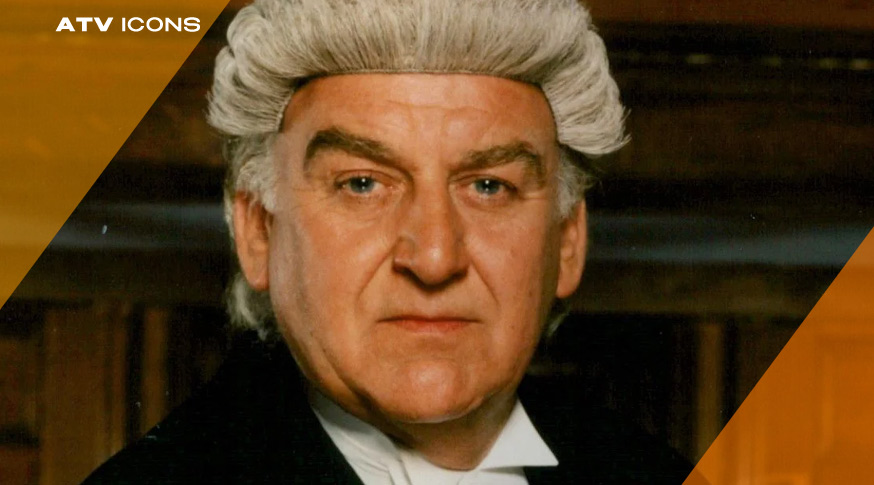
Kavanagh QC / Central/Carlton

Kavanagh QC / Central/Carlton
Earlier, in the 1970s and 1980s, he had also performed with the Royal Shakespeare Company and at the National Theatre in various productions; from Shakespearean history plays to modern dramas, his theatre work, though less publicised than his telly roles, earned him respect in the British theatrical community.
John’s personal life was marked by a long and happy marriage. His first marriage was to Sally Alexander, a budding stage manager and feminist activist, who later became a noted historian. They married in 1964, when he was in his early twenties, and had a daughter, Abigail, in 1965. However, the pressures of Thaw’s rising career contributed to the marriage ending in divorce in 1968. Abigail Thaw would grow up to become an actress herself.
In 1969, while working on a theatre project (So What About Love?), Thaw met actress Sheila Hancock, a well-known British performer. Hancock was married at the time to actor Alec Ross, so initially only a good friendship grew.
After Hancock’s husband died in 1971, coincidentally, of Esophageal cancer, the same illness that would later afflict Thaw, the friendship turned to romance. John married Sheila on 24 December 1973 in Cirencester. This marriage would last for the rest of John’s life, nearly 29 years, and the couple became one of British theatre and television’s power couples – both highly respected in their craft.
Thaw and Hancock had a daughter together, Joanna, born in 1974, who also entered the acting profession. Thaw was also a loving stepfather to Sheila Hancock’s daughter from her first marriage, Melanie, whom he formally adopted. All three children (Abigail, Joanna, and Melanie) would go on to become actresses, a fact that John Thaw took pride in.
Despite his fame, John was known to be a relatively private and down-to-earth family man. Colleagues often remarked on his unstarry demeanour and his dedication to his family. In interviews, Sheila Hancock described John as a loving husband and father, albeit one who, like many of the complex characters he played, could be introspective and intense. The family lived in semi-rural Wiltshire in later years, where Thaw enjoyed a degree of seclusion from the public eye.
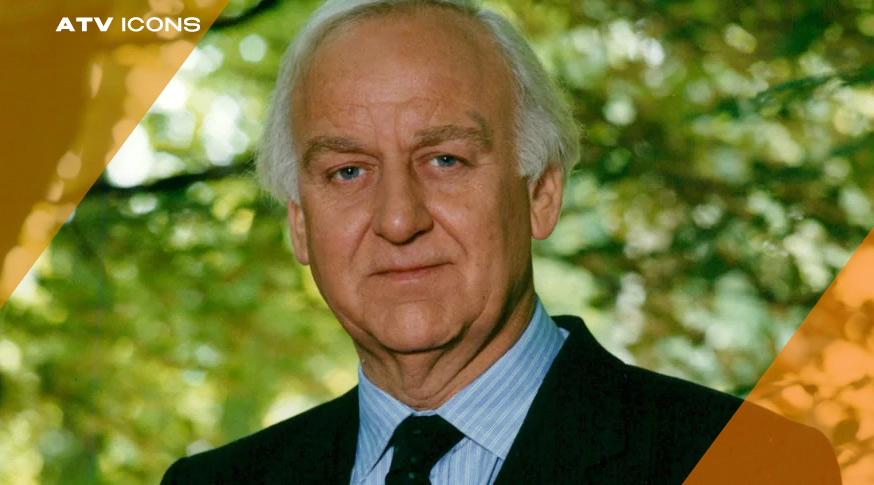
John in a publicity promo for Carlton Television / Carlton
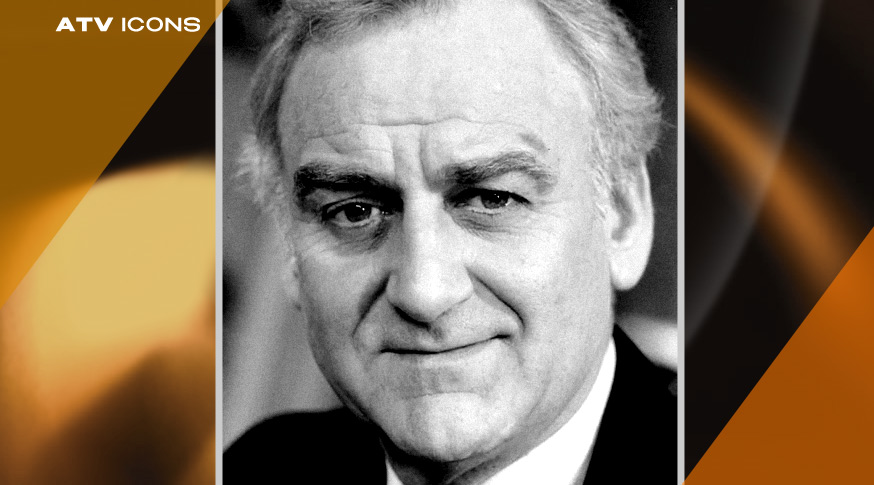
John in a publicity promo for Yorkshire Television / YTV
Thaw had a deep commitment to certain principles and causes outside of acting. He was a lifelong socialist in his political views and a supporter of the Labour Party. He was not particularly religious, but the moral themes in many of his roles (from Morse to Kavanagh) resonated with his personal belief in justice and fairness. In terms of hobbies, John shared some interests with his famous characters – for example, like Morse, he enjoyed classical music and would sometimes relax by listening to opera or symphonic recordings at home.
In contrast to the hard-drinking characters he often portrayed, Thaw in his later years significantly cut down on alcohol. In fact, by the mid-1990s he had given up drinking entirely to improve his health.
A longtime heavy smoker – he reportedly began smoking at age 12 – John faced serious health problems later in life; In June 2001, he was diagnosed with cancer of the esophagus. He kept his illness relatively private at first, undergoing chemotherapy and expressing hope of recovery. For a time, the treatment seemed promising and Thaw even spoke about returning to work – in June 2001, he optimistically announced plans for a comeback, having just signed a new contract with ITV to develop future projects.
However, just before Christmas 2001, doctors delivered the news that the cancer had spread and that his condition was terminal.
John Thaw died at his home in Wiltshire on 21 February 2002, aged 60. Tributes poured in from across the acting world. A private funeral and cremation were held at a crematorium in Westerleigh, South Gloucestershire, as he had requested a low-key service. Later, on 4 September 2002, a large public memorial service took place at St Martin-in-the-Fields church in Trafalgar Square, London.
In the years since, John Thaw’s legacy has endured through his work. He remains a towering figure in British television history, whether as the brash Jack Regan, the cerebral Inspector Morse, or the righteous Kavanagh QC, John Thaw’s performances continue to captivate new generations of audiences with regular reruns on ITV3 and ITV4.

A Year in Provance / BBC PR 1993

